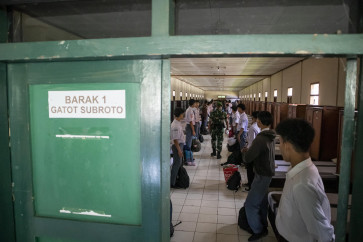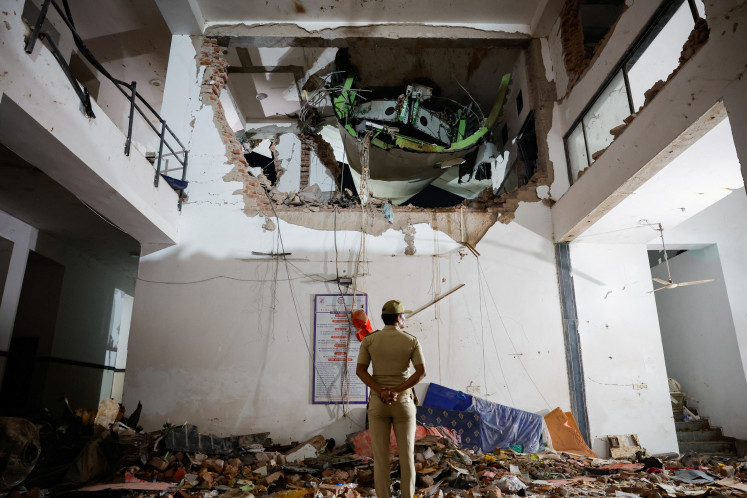Three Bali immigration officers arrested over Cambodia organ ring
The move comes as authorities crack down on the suspected illegal organ trade ring, arresting 12 members last week.
Change text size
Gift Premium Articles
to Anyone

T
hree Bali immigration officers have been arrested for their alleged role in an illegal organ trafficking syndicate that ferried dozens of victims to Cambodia to sell their kidneys, the National Police said on Saturday.
The move comes as authorities crack down on the suspected illegal organ trade ring, arresting 12 members last week, including a police officer and an immigration officer identified as AH, accused of smuggling 122 victims abroad.
The three Bali immigration officers are accused of working with AH, who allegedly took bribes to allow victims lured by the trafficking ring to easily pass through immigration checks to Cambodia for kidney surgeries.
"[They] will be brought to Jakarta this afternoon and will be under Jakarta Police custody," Jakarta Police director for general crimes Hengki Haryadi told AFP.
At least 18 of the kidney donor victims left Bali for Cambodia between March and June, he said.
Authorities believe there are more victims and are looking for them to come forward.
Some of the members of the cell are former donors who became recruiters using Facebook and WhatsApp to lure and trade victims.
The organ trafficking ring has been operating since 2019 earning Rp 24.4 billion (US$1.5 million) in total, Hengki told reporters last week.
The traffickers received Rp 200 million for each kidney, pocketing Rp 65 million and giving the rest to the victims.
The organs were harvested at Preah Ket Mealea Hospital in Phnom Penh, police said.
Organ trading is outlawed in Indonesia and the 10 syndicate members arrested last week face 15 years in prison and Rp 600 million in fines if found guilty of violating the country's human trafficking law.
The police officer was accused of obstructing the investigation and receiving bribes to help the accused traffickers move locations. He faces five years in prison if found guilty.
Immigration officer AH is accused of abuse of power and faces up to 20 years in prison.
Cash-strapped Indonesians have previously been caught selling their kidneys online for as little as Rp 50 million each, fueling a dangerous and illegal trade in human body parts.
Much of the desperate trade is driven by poverty, family debt or outstanding bank loans.
Many of the 122 victims had lost their jobs in the pandemic and were exploited because of precarious financial situations, Hengki said.









